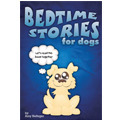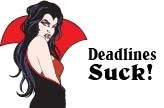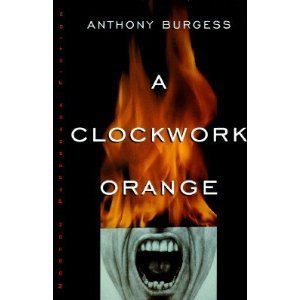Amy Neftzger's Blog, page 15
October 13, 2011
Bedtime Stories for Dogs and Cats
Just in time for the Southern Festival of Books this weekend... two NEW eBooks have been released!

Bedtime Stories for DogsA book of stories, poems, fables, and essays written by dogs for dogs. Story topics range from mythology and magic to "tails" of misfortune, adventure, and joy.

Bedtime Stories for CatsA book of stories, fables, and essays written by cats for cats. Story topics range from cat mythology to "tails" of adventure and magic.
Discover how much fun you can have reading to your pets! The two books have some unique stories and some that are similar but told from a different perspective (either cat or dog). The print version will be available in two weeks and will contain both books bound together. Please share this post with your friends. A portion of the proceeds from the sale of these books will be donated to no-kill animal shelters.
Published on October 13, 2011 11:12
October 12, 2011
Versatile Blogger Award
 I've been given awards by two of my fellow bloggers, but I've been such a slacker that it took me over a week to acknowledge these. I suppose I should clarify that I've been busy recording with my band, getting ready to release two books this month, and preparing for the Southern Festival of Books this weekend. So it's been a little crazy for me lately.
I've been given awards by two of my fellow bloggers, but I've been such a slacker that it took me over a week to acknowledge these. I suppose I should clarify that I've been busy recording with my band, getting ready to release two books this month, and preparing for the Southern Festival of Books this weekend. So it's been a little crazy for me lately.In any event, I would like to thank my buddies Jill Elizabeth and Stuart for nominating me for the Versatile Blogger award. What this means is that I've successfully managed to channel my normal scatterbrained ramblings into a palatable stew of words. I really appreciate that these two friends took the time to acknowledge me and I am continuing to spread the love. The rules associated with accepting this award are as follows. Thank and link the blogger who nominated you (please click on their names above to check out their blogs).Share seven random facts about yourself.Spread the love! Pass the award on to five other bloggers. Make sure to contact and congratulate them!With that said, here are seven random facts about me:I do not have six toes on my left foot. I once had a very nice friend named Jennifer with whom I worked. I convinced most of the office that Jennifer did have six toes on her left foot. Luckily Jennifer never wore sandals.Jennifer never calls me anymore.I once had a very nice friend named Shannon with whom I worked.I convinced most of the office that Shannon was having a secret love affair with Megadeth frontman Dave Mustaine. A lot of people still think it's true.Shannon tries to avoid me but I know where she lives. I also post on her Facebook page regularly. My posts often reference her relationship with Dave.Bonus fact: You probably don't want to work closely with me.I now pass this award on to five fun filled bloggers who I enjoy reading regularly. Several are book related, but some are just for fun. And some of these blogs are even useful, unlike most of my posts. Please check them out when you have a moment at work and your boss isn't looking.
http://jennifer-daiker.blogspot.comhttp://neilostroff.blogspot.comhttp://www.besottedwithbooks.net
Published on October 12, 2011 12:15
October 4, 2011
Poetic Justice?

I recently posted the above photo on Facebook. I admit that I stole it from someone else on Facebook (my buddy Nick) and don't know the original author. However, I thought it was the funniest thing I had ever seen and a work of genius. People who love books seem to enjoy it, anyway.Now here's the funnier part: Shortly after I posted this photo and laughed my head off I received an email that MTV has licensed two of my band's songs. What this means is that MTV can use the songs in any of their TV shows, including Jersey Shore. If this happens it would be an excellent example of poetic justice. One, of course, that I would encourage as it involves royalty checks made out to yours truly.For those of you unfamiliar with poetic justice, it's a literary device that involves irony. In my case, I poked fun at a TV show and then found out that I may now serve to gain financially from the show (or at the very least from the show's network) making me something of a hypocrite. Now that's ironic. And funny.By the way, I still think the photo is hilarious.P.S. Check out my band (of which I am the drummer and lyricist) Lucky Munk here.
Published on October 04, 2011 11:38
September 20, 2011
10 Reasons Why Dogs Are Better Than People.

1.) They don't give you bad financial advice. In fact, my dog has never interfered with my finances or asked for any gift larger than a slice of pizza.2.) They never ask if they can date your single friends or if you can set them up with someone. So you never have to worry about how to handle the situation if you're walking through the park one day and run into other dogs they've previously dated.3.) They don't brag about how much money they make or what kind of car they drive.4.) They don't try to push their belief system on you. Can you imagine your dog scolding you for flushing your poop away instead of rolling in it? I didn't think so. 5.) They know how to eat and never refuse food because they're "on a diet." 6.) They don't pretend to love work unless they really do love it.7.) They always tell you that your food is great, no matter what your cooking skills. And they believe it, too.8.) They're never too busy for you. Whether you want to play with them or hold them while you cry. Dogs know how to be there with you.9.) When they're dying they don't make demands, try to manipulate people, or make anyone feel guilty over relationships. They don't ask for memorials or worry about how you'll remember them. They only ask that you be there with them when they pass away. That's why I respect them and wish I could be more like them. They know how to love.10.) They know what's important and that's what they focus their lives upon: relationships.
Published on September 20, 2011 12:58
September 13, 2011
Eight Ways to Procrastinate
Sure you could troll FaceBook, watch YouTube videos, or surf the Internet, but there are better ways to procrastinate. Here are some of my favorite ways to procrastinate:1.) Play with dolls. DO NOT under any circumstances take them out of the package. The employees in the toy store get really angry when you do that. Sometimes they even make you buy the dolls.2.) Make a list of all the restaurants that give you free drinks on your birthday. Then schedule more birthdays for yourself. Get these on your calendar and make sure that you don't have two scheduled too closely together at the same restaurant. I recommend at least 6 months apart.3.) Prepare excuses in case you're caught having two free birthday drinks at the same restaurant in less than a year. For example, "Oh, you must be thinking about my twin brother. He was here six months ago on his birthday." or "Sorry, I was here with my sister when it was her birthday. Perhaps you remember me from that time, but she was the one who got the free drink." And so forth.4.) Set up a FaceBook account for your dog or cat. Next, teach them their password because you'll never remember it.5.) Hack my dog's Facebook account. Once you get in, please send me the password because neither I nor my dog remember it.6.) Build a new food pyramid out of legos and then write letters to the government on why they should adopt it. The letters should all be done in PowerPoint. No paragraphs or prose, but some poetry will be allowed if it is Haiku or Limerick in format. Encourage the government to write back in the same format, as no other writing style will be considered a serious response to your efforts.7.) Make a list of your skills and a separate list for your super powers. Elaborate on why you have classified each as such. For example, super human strength is really a skill. Why?8.) Write a blog about nonsense. (Check that one off my list for today).
Published on September 13, 2011 11:56
September 6, 2011
Why Deadlines Suck

I'm behind on a deadline for my book(s), which got me to thinking about how much deadlines suck. To be fair, I think that aligning tasks in a timeline is a good thing. But no one likes deadlines. They're the red headed step child of project management. So it got me thinking about why deadlines suck and what we can do about it.First of all, nothing with the word "dead" in the title is good. Right off the start the word has a negative connotation. If you want someone to think positively about a deadline then it needs to be rebranded with a more acceptable term other than "dead." Secondly, deadlines are like ghosts floating in the air trying to frighten people who don't believe they exist. They're more annoying than scary.So here are a few alternative suggestions: Lifeline It means the same thing as deadline, but it puts a positive spin on task completion because when you achieve it you'll really feel "alive!" Happy Moment When the task is complete you're in your "happy moment." Or maybe the boss is in her happy moment. Either way it sounds positive and uplifting, like a good bra. Zombieline Because zombies are "undead" and zombie movies are fun. Let's transfer these concepts to goal attainment terminology. Punishment Avoidance Date This one is self explanatory. However, it still has a slight negative connotation. I give it points for honesty, but it's not my favorite option. It's like saying "slightly soiled intestinal tubes" instead of "sausage casing." See the difference? Fleeting Moment of Accomplishment This term evokes honesty and realism. When your boss checks in she can say "Have you reached your fleeting moment of accomplishment yet?" Because as soon as you say yes you know you'll be getting more work. The moment really is fleeting. Successful Posterior View Meaning that when you look back you feel successful if you have reached your goal. Plus this sounds like you've been in the gym and have a great butt. Who wouldn't want that?Don't kid yourself. Whatever you call it we'll all know that you're lying and trying to sell us sewage scented perfume. Deadlines stink no matter what you call them. But we'll have a great time laughing at you for using these absurd terms.
Published on September 06, 2011 11:38
August 30, 2011
Writing Style
People sometimes ask me about my writing style and I hate to describe myself because I really do write some very diverse material. However, while cruising through some of the other blogs I follow regularly, I came across a website called "I Write Like."
On this site you can submit a sample of your writing and the site compares your writing to samples from thousands of famous writers in their database. There is some sort of algorithm that looks at your word choice and sentence structure to determine which famous author your writing most resembles. I decided to test this out for fun and got different results for different writing samples. In total, I submitted 5 samples and below is a list of my results. The words in parentheses list where my writing samples came from in order to get the text for comparison.
1.) Vladimir Nabokov (Bedtime Stories for Cats - My latest book that will be out soon.)
2.) Mark Twain (Parson's Song - Short Story)
3.) James Joyce (Peripheral Witches - Short Story)
4.) Vladimir Nabokov (Conversations with the Moon)
5.) Kurt Vonnegut (My blog post on A Clockwork Orange)
I can't say whether or not this is valid, but it sure is a lot of fun. I recommend that you use at least a page of your writing. Since two of my book samples were classified as writing like Vladimir Nabokov, I'll happily accept the comparison. I only started reading his work a few years ago but he's an excellent writer and I'm flattered to be classified with him.

I write like
Vladimir NabokovI Write Like by Mémoires, journal software. Analyze your writing!
I also love Kurt Vonnegut and have since I was in the third grade when I read Breakfast of Champions (the book was a gift from my Dad, btw). I'm honored to be listed with Kurt. I really like and respect his work, so I'll keep this result whether or not it's true. It doesn't matter. Sometimes the dream is more important than reality because the dream is what keeps us going so that we can eventually make it a reality.

I write like
Kurt VonnegutI Write Like by Mémoires, journal software. Analyze your writing!

On this site you can submit a sample of your writing and the site compares your writing to samples from thousands of famous writers in their database. There is some sort of algorithm that looks at your word choice and sentence structure to determine which famous author your writing most resembles. I decided to test this out for fun and got different results for different writing samples. In total, I submitted 5 samples and below is a list of my results. The words in parentheses list where my writing samples came from in order to get the text for comparison.
1.) Vladimir Nabokov (Bedtime Stories for Cats - My latest book that will be out soon.)
2.) Mark Twain (Parson's Song - Short Story)
3.) James Joyce (Peripheral Witches - Short Story)
4.) Vladimir Nabokov (Conversations with the Moon)
5.) Kurt Vonnegut (My blog post on A Clockwork Orange)
I can't say whether or not this is valid, but it sure is a lot of fun. I recommend that you use at least a page of your writing. Since two of my book samples were classified as writing like Vladimir Nabokov, I'll happily accept the comparison. I only started reading his work a few years ago but he's an excellent writer and I'm flattered to be classified with him.

I write like
Vladimir NabokovI Write Like by Mémoires, journal software. Analyze your writing!
I also love Kurt Vonnegut and have since I was in the third grade when I read Breakfast of Champions (the book was a gift from my Dad, btw). I'm honored to be listed with Kurt. I really like and respect his work, so I'll keep this result whether or not it's true. It doesn't matter. Sometimes the dream is more important than reality because the dream is what keeps us going so that we can eventually make it a reality.

I write like
Kurt VonnegutI Write Like by Mémoires, journal software. Analyze your writing!
Published on August 30, 2011 06:41
August 23, 2011
Imaginary Numbers
People who know me well also know that I love making up words.
For example:
Buttmunchery n. Asinine and pointless behavior designed to annoy others.
Used in a sentence:
"Flagrant buttmunchery will not be tolerated in a corporate setting. All buttmunchery must be, at the very least, thinly disguised to look like a form of colleague development."
Part of this tendency to make up words comes from my psychological training (psychologists make up words all the time because they got bored stealing from Greek). Anyhow, since I also have a love of numbers and measurement I thought I'd make up a few numbers. Maybe in a few years these will make it into the dictionary just like the term "Gazillion" actually did!
My numbers are:
Oodleplex: infinitely larger than a googolplex. e.g., the number of years it will take congress to agree on how to balance the budget.
Sinfinity: So much freakin' money that it's sinful.
Maximillion: The maximum number of millions you can earn before you're taxed to Sinfinity.
Oopszillion: An enormous amount lost on the stock market. At least the loss will be a tax write-off. But it's still an "oops."
Gatsbyllion: A large sum of money spent trying to woo a lover who never returns your affections. Particularly appropriate if the person of your affection is named after a flower.
Imaginarium: The huge amount that you erroneously believe you will be paid as an honorarium.
Balloonoplex: The difference between the large sum you expected to receive as an honorarium and the actual sum, which is somewhere between Planck's constant and zero.
Alpha: The amount the top dog makes.
Diggity: A really cool looking number of any amount. It just has to look good and maybe have a groove that makes people want to dance.
Giggleplex: A huge amount received by a lottery winner. Every time these people think about how much money they've won it makes them giggle. If they're lucky it will be greater than oopszillion and somewhere in the vicinity of maximillion.
For example:
Buttmunchery n. Asinine and pointless behavior designed to annoy others.
Used in a sentence:
"Flagrant buttmunchery will not be tolerated in a corporate setting. All buttmunchery must be, at the very least, thinly disguised to look like a form of colleague development."
Part of this tendency to make up words comes from my psychological training (psychologists make up words all the time because they got bored stealing from Greek). Anyhow, since I also have a love of numbers and measurement I thought I'd make up a few numbers. Maybe in a few years these will make it into the dictionary just like the term "Gazillion" actually did!
My numbers are:
Oodleplex: infinitely larger than a googolplex. e.g., the number of years it will take congress to agree on how to balance the budget.
Sinfinity: So much freakin' money that it's sinful.
Maximillion: The maximum number of millions you can earn before you're taxed to Sinfinity.
Oopszillion: An enormous amount lost on the stock market. At least the loss will be a tax write-off. But it's still an "oops."
Gatsbyllion: A large sum of money spent trying to woo a lover who never returns your affections. Particularly appropriate if the person of your affection is named after a flower.
Imaginarium: The huge amount that you erroneously believe you will be paid as an honorarium.
Balloonoplex: The difference between the large sum you expected to receive as an honorarium and the actual sum, which is somewhere between Planck's constant and zero.
Alpha: The amount the top dog makes.
Diggity: A really cool looking number of any amount. It just has to look good and maybe have a groove that makes people want to dance.
Giggleplex: A huge amount received by a lottery winner. Every time these people think about how much money they've won it makes them giggle. If they're lucky it will be greater than oopszillion and somewhere in the vicinity of maximillion.
Published on August 23, 2011 04:21
August 16, 2011
A Clockwork Orange: An Ingenious Allegory of the Corporate World

I just finished reading A Clockwork Orange. I know that a lot of people find this book confusing because it contains made up words, a ton of violence, and deviant minds. Sound familiar? Yes, it's a lot like the corporate world. If you look at the book through this lens it quickly makes a lot of sense. Think of the main character Alex as a CEO and his droogies as fellow executives. Follow my logic here:
1.) Alex is very good at establishing alibis through buying his way into the hearts of poor old fools by convincing them that he's really a nice guy. The poor old fools in this case represent Congress (or other governing officials, for those outside of the US).
2.) He drinks milk which has the appearance of wholesomeness. However, the drink is laced with some pretty hefty narcotics and our friend Alex is anything but wholesome. Executives are big on appearance and often appear to be in a mind altering state that keeps them from properly viewing reality.
3.) He speaks using made up words. Executives do this all the time. Take for example words such as synergy, re-purpose, monetize, actionable, etc. You get the picture. The business world is full of just as many nonsense words as I found in this book, if not more. In fact, business terminology is slang of the worst sort: devoid of any true meaning.
4.) Note that once Alex has established trust with the poor old fools who will vouch for him, he sets off looking for victims to rape and rob. This is a classic business cliche, but as with most cliches this one contains some truth. Also note that the goofs in the bar continue to vouch for Alex regardless of what Alex has actually done because Alex has bought their loyalty. Sound familiar?
So what can we learn from this book?
~ Bad executives can be very dangerous to society.
~ I think the point above pretty much sums it all up.
~ However, I'm going to put an extra bullet here to make my point appear more substantial
Without giving away the plot (for those of you who haven't yet read the book), the moral of the tale can be summarized in the words of the prison chaplain: "Goodness is something chosen." Ergo, expecting or even legislating moral behavior in executives is likely to be an exercise in futility. The best we can do is to lock them away to protect society until they grow up and learn to behave like responsible people.
You could say that I'm reading too much into this book. But at least I read it.
Published on August 16, 2011 12:01
August 9, 2011
Best Job Interview Questions and Assessments
I've interviewed a lot of people for both regular full time, part time, and freelance jobs. I like to ask interesting and creative questions during the process to see how the applicants respond. This often tells me more about the person than the standard "tell me about your employment history" types of questions. So today I'm sharing some of my favorite interview questions and assessment tests.
As a brief disclaimer to make my attorney happy: In no way am I saying these assessments are legal, should be asked under any circumstances, or admitting that I've actually asked any of them. Now, with that out of the way, let's mess with a few imaginary job applicants and ask them the following:
1.) "Do you believe that women have souls?"
I got this question from the book "Cold Comfort Farm" and thought it was so good that I added it to my list of interview questions. I like to examine the applicant's reaction. The best answer I received was from a psychologist. He replied, "I know they do because my wife tells me so."
2.) "Please bend this spoon with your mind."
That's all you say. Then set a plastic spoon down in front of the person. Next, pick up a stopwatch, click the start button, and then stare at the person patiently. Keep glancing back at the watch and pretend to make notes.
3.) "Each of my personalities refuses to believe that the others exist. How would you handle the situation if two of them gave you conflicting assignments with the same deadline?"
This is really a good situational test to see how an individual would handle stress on the job. In addition, anyone who dismisses the question as absurd is demonstrating a lack of creativity and should be eliminated from consideration for the job.
4.) "How many fairies does it take to change a lightbulb?"
The correct answer: none. They use their wands to light the room so lightbulbs are irrelevant. I know it seems too obvious, but I'm amazed at how many people get this one wrong. Really good applicants will ask "What color light?" before giving an answer.
5.) "Do you see dead people?"
Some people get freaked out by this question, but this skill could be extremely useful in the workplace. Dead people often have information and insight that the living don't have. Rare information is also often valuable to living people with credit cards.
I have a lot more "alleged" questions and assessments, but this is probably enough to get you all started on making up your own. Soon you'll see how much fun it is to interview job candidates and you'll want to hire someone every week. Think of this blog post as my contribution to the economy.
As a brief disclaimer to make my attorney happy: In no way am I saying these assessments are legal, should be asked under any circumstances, or admitting that I've actually asked any of them. Now, with that out of the way, let's mess with a few imaginary job applicants and ask them the following:
1.) "Do you believe that women have souls?"
I got this question from the book "Cold Comfort Farm" and thought it was so good that I added it to my list of interview questions. I like to examine the applicant's reaction. The best answer I received was from a psychologist. He replied, "I know they do because my wife tells me so."
2.) "Please bend this spoon with your mind."
That's all you say. Then set a plastic spoon down in front of the person. Next, pick up a stopwatch, click the start button, and then stare at the person patiently. Keep glancing back at the watch and pretend to make notes.
3.) "Each of my personalities refuses to believe that the others exist. How would you handle the situation if two of them gave you conflicting assignments with the same deadline?"
This is really a good situational test to see how an individual would handle stress on the job. In addition, anyone who dismisses the question as absurd is demonstrating a lack of creativity and should be eliminated from consideration for the job.
4.) "How many fairies does it take to change a lightbulb?"
The correct answer: none. They use their wands to light the room so lightbulbs are irrelevant. I know it seems too obvious, but I'm amazed at how many people get this one wrong. Really good applicants will ask "What color light?" before giving an answer.
5.) "Do you see dead people?"
Some people get freaked out by this question, but this skill could be extremely useful in the workplace. Dead people often have information and insight that the living don't have. Rare information is also often valuable to living people with credit cards.
I have a lot more "alleged" questions and assessments, but this is probably enough to get you all started on making up your own. Soon you'll see how much fun it is to interview job candidates and you'll want to hire someone every week. Think of this blog post as my contribution to the economy.
Published on August 09, 2011 11:22



